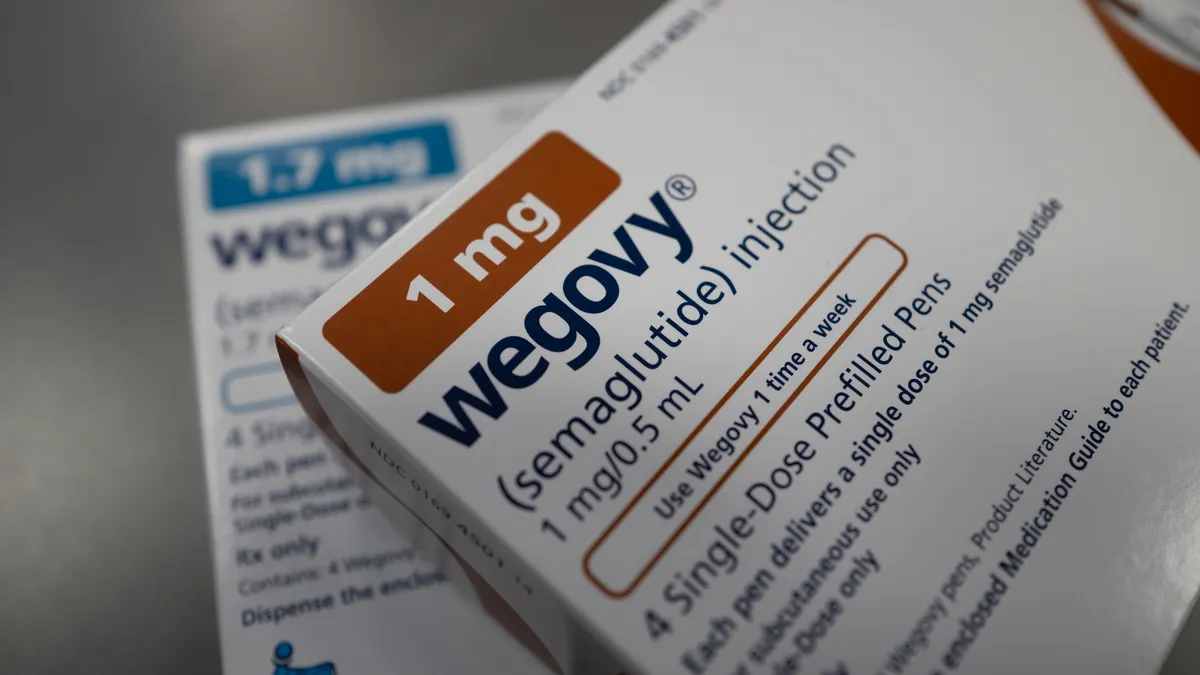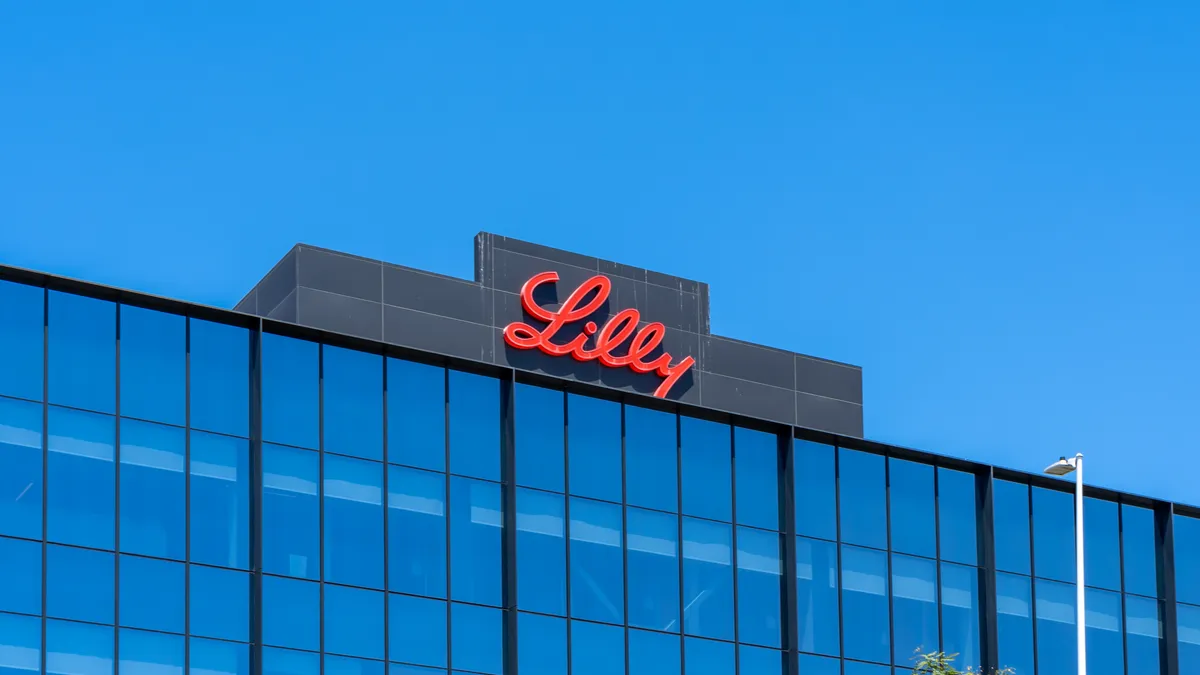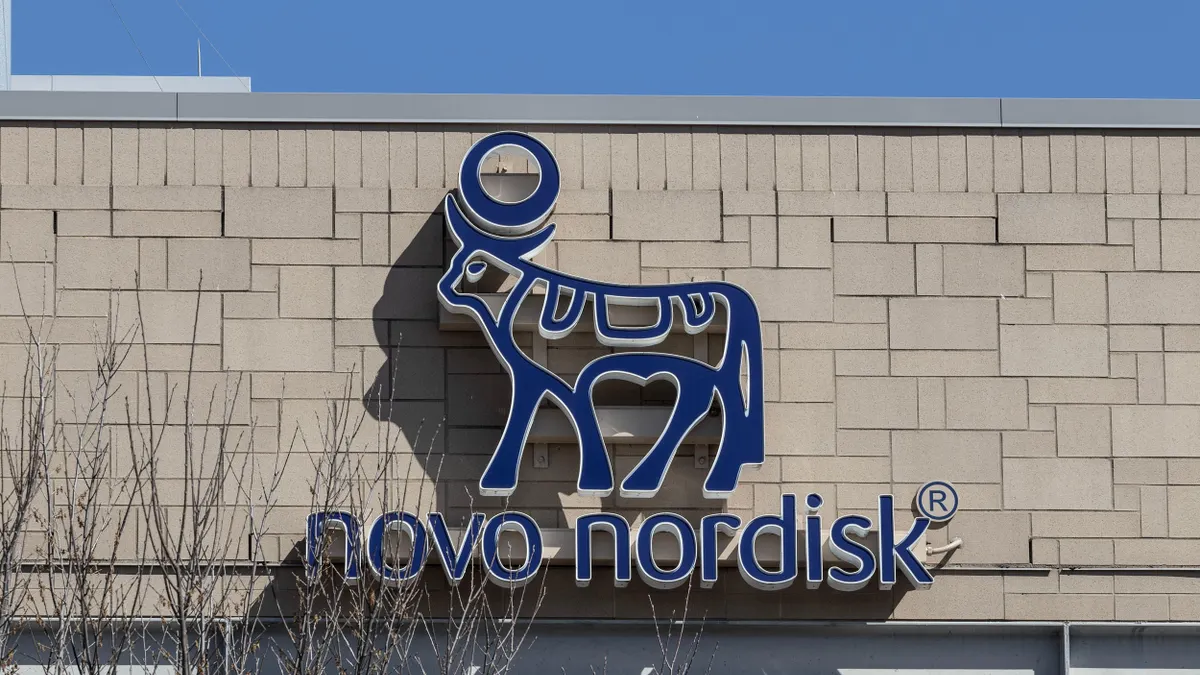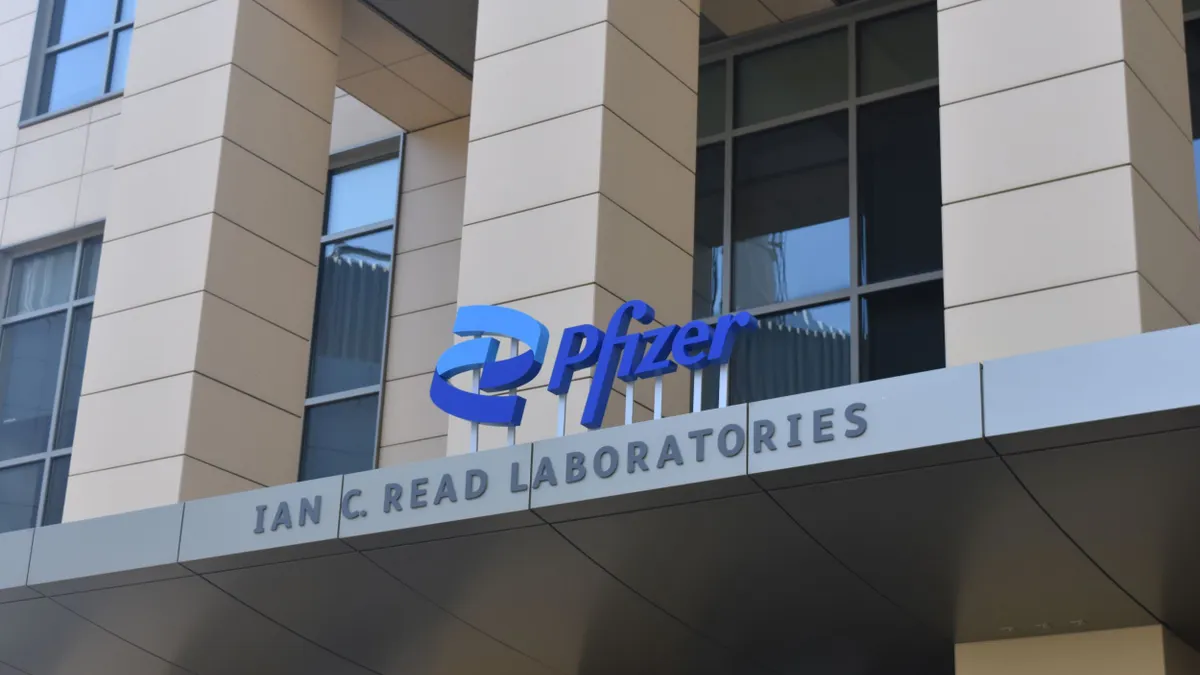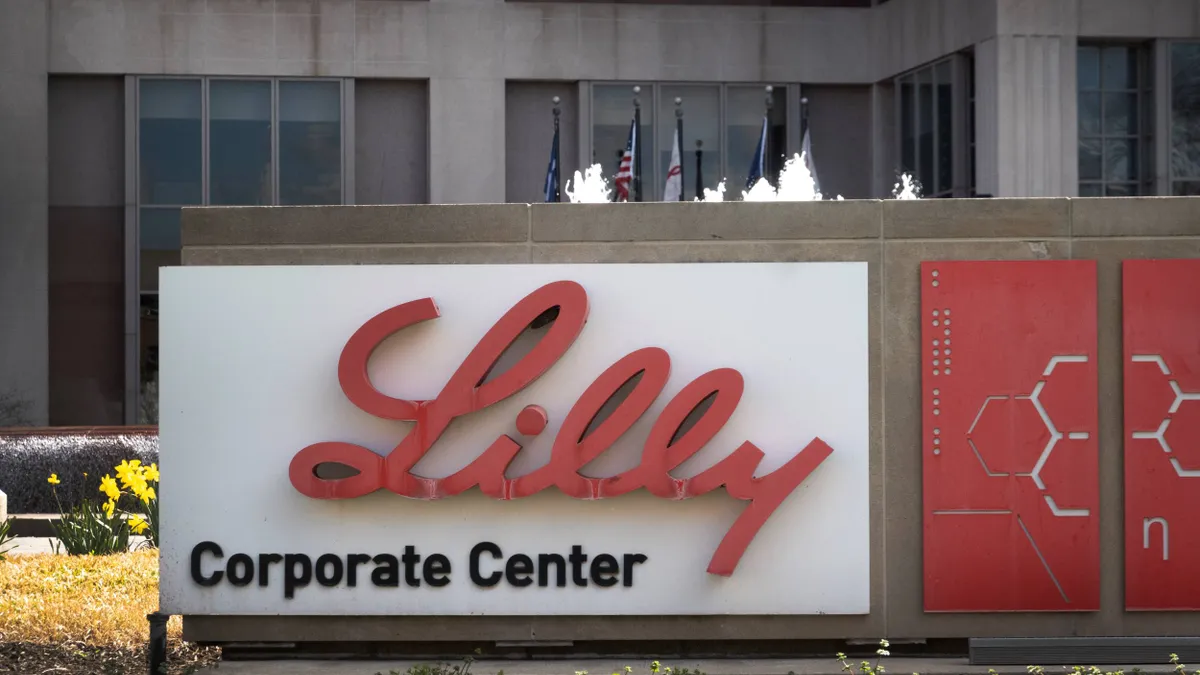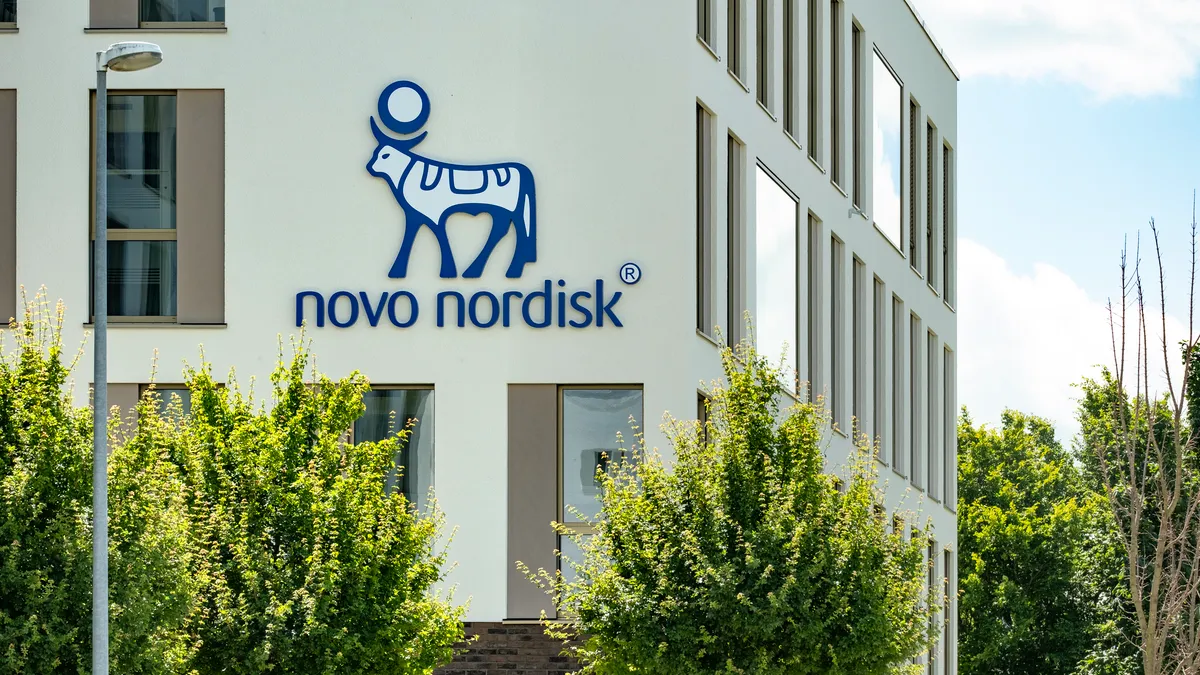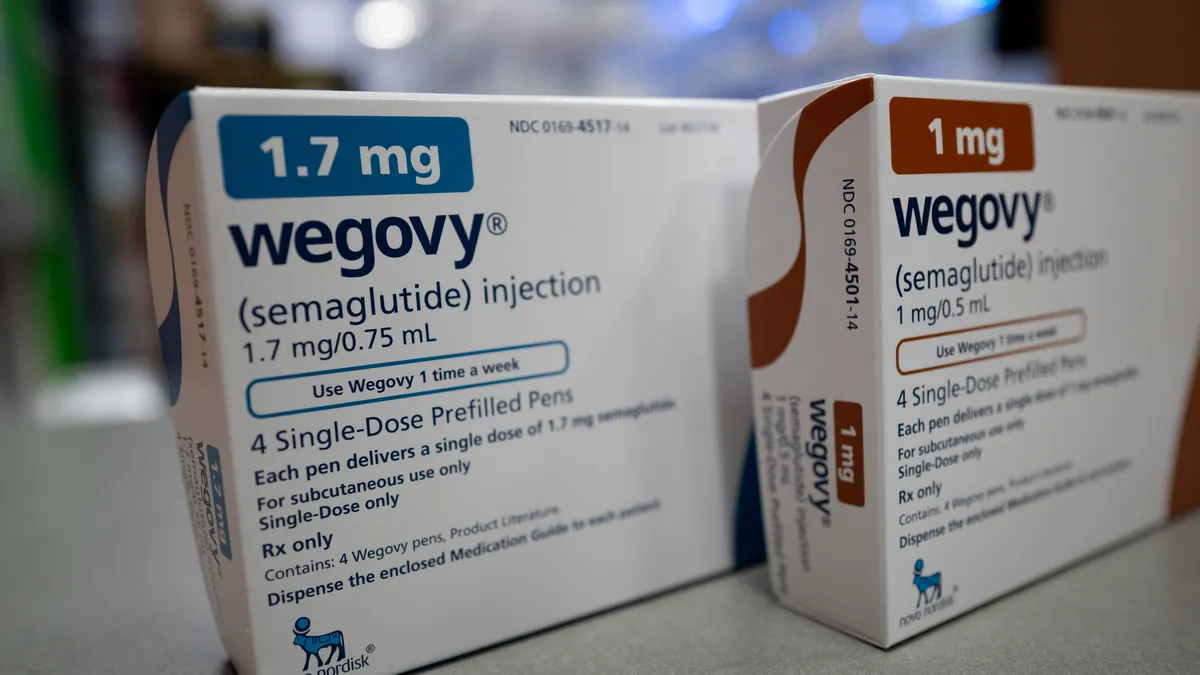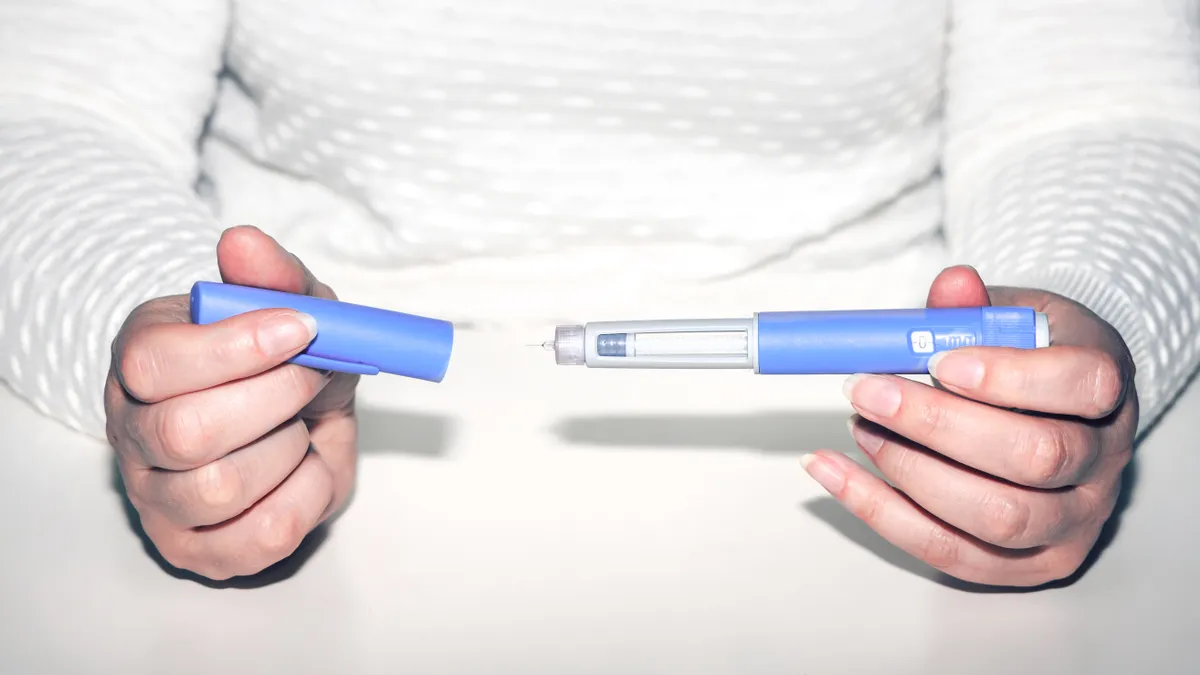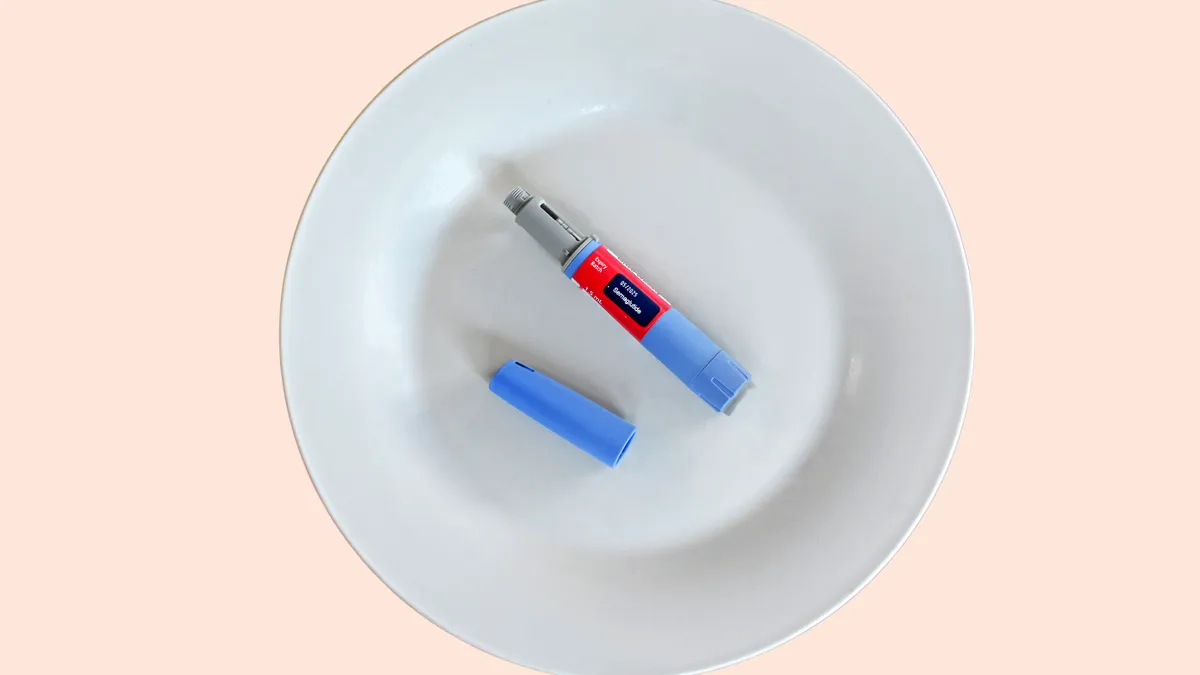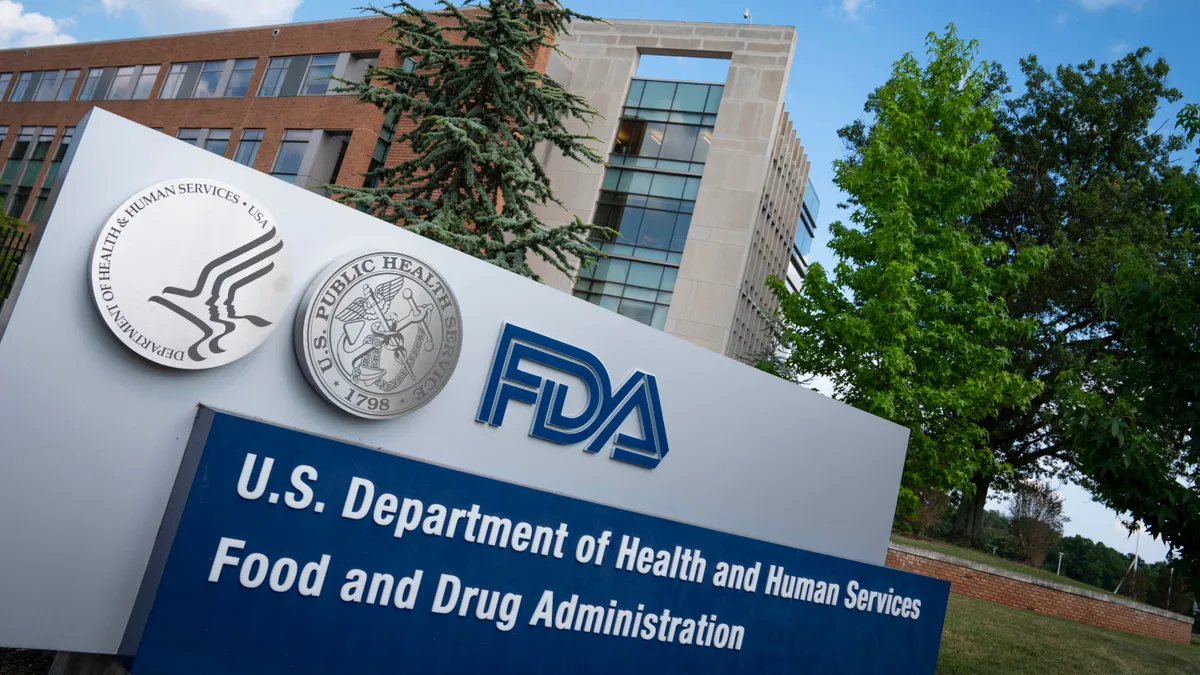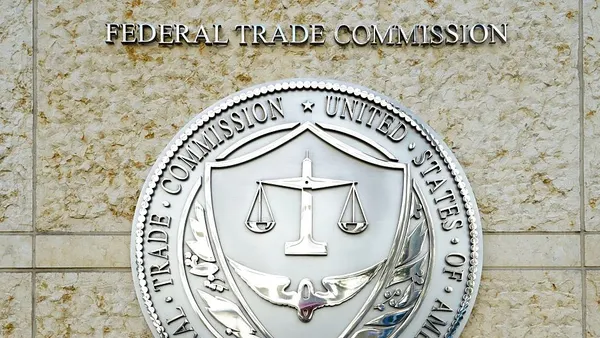Dive Brief:
- More adults are taking GLP-1 drugs to control their weight, despite recently resolved shortages and high list prices, according to new research.
- The percentage of overweight or obese adults prescribed a GLP-1 jumped from 0.3% in 2019 to 2.05% in 2024 — an almost sevenfold increase, according to an analysis of commercial claims by nonprofit Fair Health.
- Yet only a small percentage of adults with obesity or who are overweight receive treatment, resulting in a large untreated population that drug manufacturers aim to target. More than 80% of obese or overweight people didn’t receive a GLP-1, bariatric surgery or behavioral healthcare in 2024, Fair Health found.
Dive Insight:
Fair Health trawled its repository of more than 51 billion commercial claims records to analyze trends in obesity and GLP-1 coverage.
GLP-1 agonists work by mimicking a hormone to lower blood sugar levels and inhibit appetite. The drugs were originally developed to treat diabetes, but more recently have shown efficacy in treating a variety of other conditions, including weight loss.
GLP-1 adoption has skyrocketed as a result. Roughly half of all people who got a GLP-1 prescription last year did so for weight loss, Fair Health found.
The sheer demand for the drugs for weight loss is clearer when people with Type 2 diabetes are factored out of the data: The percentage of obese or overweight adults who didn’t also have diabetes prescribed GLP-1s increased a whopping 1,961% between 2019 and 2024, according to the nonprofit.
Along with giving new hope to people who struggle to lose and keep off excess weight, GLP-1s have created a windfall for drug manufacturers, which are competing aggressively. Analysts estimate that sales of anti-obesity medications could reach $100 billion by 2030.
Currently, three GLP-1 drugs are approved by the Food and Drug Administration for weight management: Saxenda and Wegovy, both manufactured by Danish drugmaker Novo Nordisk; and Zepbound, manufactured by Indianapolis-based Eli Lilly.
Saxenda, the first GLP-1 cleared for weight loss treatment, was approved in 2014, but Wegovy, a significantly more effective version, wasn’t approved until 2021.
Last year, Novo brought in more than $9 billion in sales from Wegovy and Saxenda, while Eli Lilly earned $4.9 billion from Zepbound. 2024 was the first full year Zepbound was approved and on the market for weight management.
GLP-1 prescriptions have risen sharply over the past five years, including for weight loss drugs
The two drugmakers have struggled to maintain supply, however, after sky-high demand created shortages for the drugs last year. That temporarily allowed telehealth companies to work with compounding pharmacies and sell knock-off medications.
GLP-1s are no longer in shortage. Yet the competition, however brief, cut into drugmakers’ expected profits for 2025 and sparked a leadership turnover at Novo.
Another challenge has been the medications’ price. Novo’s Wegovy and Lilly’s Zepbound carry list prices above $1,000 per month for their standard dose format, although both companies have made available other formulations for cash prices of a few hundred dollars.
The drugs’ cost has raised concerns around their financial burden for payers. Fewer than 1 in 5 employer-sponsored plans covered GLP-1s for weight loss in 2024, with many citing cost as the limiting factor.
Earlier this month, Novo and Lilly partnered with Cigna’s health services subsidiary to discount GLP-1s for employer and health plan clients, and cap patients’ copays for the weight loss medications. That agreement followed a similar deal between CVS Caremark and Novo to give Wegovy preferred access on the massive pharmacy benefit manager’s standard formulary.
Obesity, which increases the risk of other diseases like heart disease and diabetes, affects more than 40% of Americans, according to the Centers for Disease Control and Prevention. That percentage is expected to reach 50% by 2030.
There’s increased scrutiny on the issue now, as the “Make America Healthy Again” movement spearheaded by HHS Secretary Robert F. Kennedy Jr. has blamed poor dietary choices for rising incidences of chronic conditions like obesity, including in a high-profile report the White House released last week.
Kennedy has criticized the pharmaceutical industry for profiting off of Americans’ poor health, including by offering GLP-1s for weight loss when he says the issue could be better addressed with healthier food and lifestyle choices.
In April, the Trump administration declined to allow Medicare, the federal insurance program for elderly Americans, to cover obesity drugs. The policy would have carried steep costs, putting taxpayers on the hook for an estimated $40 billion in additional spending over a decade.
Medicare is currently negotiating lower prices for Novo Nordisk’s Wegovy and Ozempic in Medicare under the Inflation Reduction Act, however. The new rates, which take effect in 2027, are expected to eventually deflate prices for other GLP-1s.



